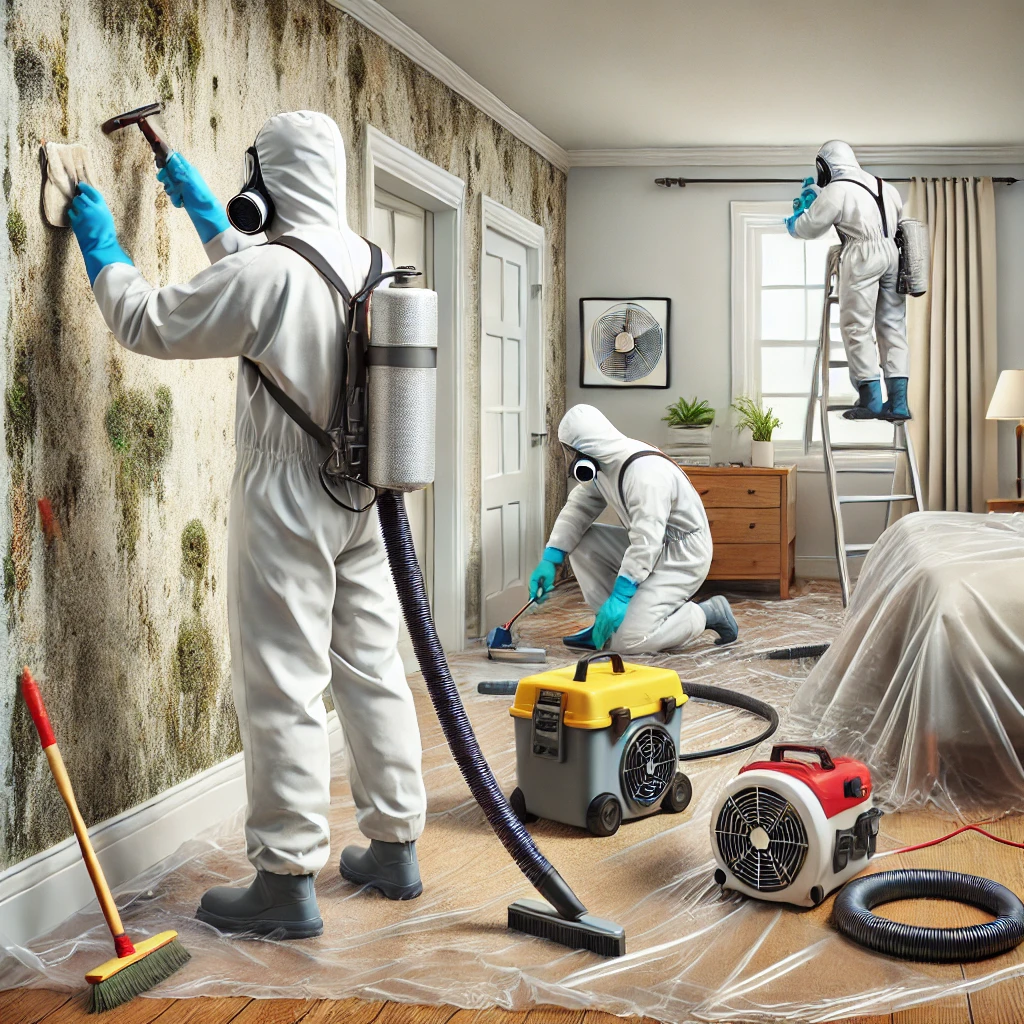Mold remediation is a vital process for maintaining a safe and healthy indoor environment, especially in areas prone to moisture accumulation, like basements, bathrooms, and kitchens. Mold, a type of fungus that thrives in damp, dark environments, can quickly spread if left unchecked, damaging property and posing health risks such as allergies, respiratory issues, and in severe cases, infections. The remediation process begins with a thorough assessment by professionals who identify mold presence, type, and extent of spread. Once identified, containment measures are set up to prevent spores from spreading to unaffected areas. This often involves using negative air pressure machines and sealing off impacted spaces with plastic sheeting. The next stage is mold removal, where specialists use industrial-grade cleaners and tools to physically remove mold from hard surfaces, and may need to discard porous materials like drywall and carpeting if they’re heavily contaminated. During this process, professionals may also employ HEPA vacuuming to capture airborne spores, ensuring that mold doesn’t recontaminate the area. Mold remediation also involves addressing the root cause—typically moisture issues from leaks, poor ventilation, or high humidity. Professionals may recommend and implement solutions like repairing leaks, improving airflow with dehumidifiers, or using exhaust fans in moisture-prone areas. After the cleaning phase, a post-remediation verification, or clearance testing, is typically performed to confirm the absence of mold and ensure the air quality meets safety standards. Homeowners can help prevent mold regrowth by controlling humidity levels, promptly repairing leaks, and conducting regular inspections, particularly in areas vulnerable to moisture buildup. Attempting to handle mold on your own, especially extensive contamination, can be risky, as improper removal methods may cause mold spores to spread, exacerbating the problem and posing health hazards. Additionally, many molds produce mycotoxins, toxic compounds that, in high concentrations, can have more severe effects on human health, especially for individuals with compromised immune systems or respiratory conditions. For this reason, professional intervention is often recommended. Mold remediation not only restores a clean, safe environment but also helps preserve property value by preventing structural damage that mold can cause over time. By tackling mold issues early and using professional remediation services, property owners can protect both their health and investment, ensuring a long-term solution to a potentially hazardous problem.

